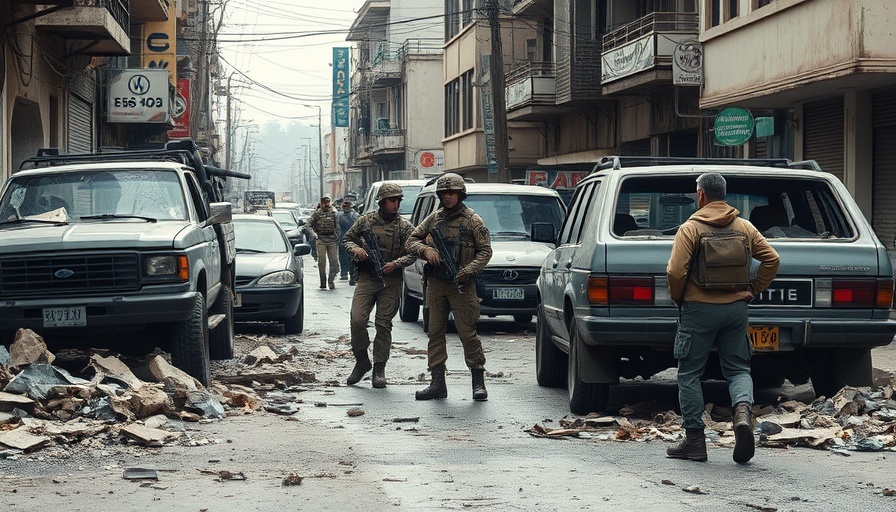
The Fragile Nature of the Israel-Iran Ceasefire
The recent ceasefire between Israel and Iran, while hailed as a step towards peace, is under scrutiny for its stability. Observers note that despite initial reports of violations, the agreement seems to hold, albeit precariously. This unfolding situation raises significant questions not only about the cessation of hostilities but also about the underlying tensions that continue to simmer beneath the surface.
In 'Israel-Iran ceasefire appears to hold amid tensions and diplomatic juggling', the discussion dives into the complexities of the ongoing ceasefire between these two nations, prompting us to analyze the implications for broader international relations and conflict resolution strategies.
Escalation Amidst Truce: A Political Analysis
Israeli President's visit to the southern city of Bashaba highlighted the volatility of the ceasefire—this visit coincided with reports of an Iranian missile strike in the area shortly after the truce was initiated. Such provocations exemplify the thin line that separating peace from a reignited conflict. The political ramifications of such actions are profound, suggesting that both countries remain willing to exert military pressure even as they engage in diplomatic talks.
US Involvement and Global Diplomatic Efforts
The role of the United States in facilitating the ceasefire is noteworthy. President Trump acknowledged the implementation of the truce but expressed his frustration toward both nations for their apparent disregard of this agreement. The international community, especially allied nations, are watching closely, as the dynamics set forth could influence broader geopolitical alignments. Additionally, Russia's willingness to assist in deescalating tensions, while simultaneously ruling out mediation, complicates the situation further, demonstrating the intricate dance of diplomacy among global powers.
Potential Outcomes and Predictions for Stability
The future of the ceasefire hangs in the balance, with many analysts forecasting a continued cycle of tension and cessation. The mutual accusations—Israel alleging Iranian missile provocations and Iran vehemently denying any wrongdoing—underscore the fragile status quo. Moving forward, a comprehensive understanding of these diplomatic and military tensions is essential for predicting outcomes. Will an increase in multilateral negotiations alter the trajectory of aggression, or will entrenched positions hinder progress?
Relevance to Broader Global Politics
This situation's impact extends beyond the immediate actors of Israel and Iran, touching on the interests of global players and regional allies. The responses of neighboring countries, as well as international organizations like the United Nations, will be vital in shaping future policy and action. A sustained focus on African perspectives on such conflicts could enrich discussions, offering unique insights into the complexities of global diplomacy shaped by historical precedents and contemporary realities.
Pivotal Lessons for African Leaders and Policy Makers
The Israel-Iran ceasefire reflects a broader narrative relevant to Africa today. As nations on the continent grapple with their intra- and inter-state tensions, the dynamics of ceasefires, peace negotiations, and third-party facilitation can offer critical lessons. Analyzing the implications of these diplomatic maneuvers can inform strategies for conflict resolution in African contexts, elevating the dialogue around sustainable peace.
Global Audience Reflections on Tensions
For professionals engaged in international relations, policy analysis, and conflict resolution, the Israel-Iran situation provides a case study on the complexities of modern diplomacy. Understanding the nuances behind the ceasefire and the actors involved can enhance their readiness to respond to similar crises. The revelations from this conflict could offer valuable insights for analysts who apply these examples to the ebb and flow of political dynamics in Africa and beyond.
 Add Row
Add Row  Add
Add 




Write A Comment